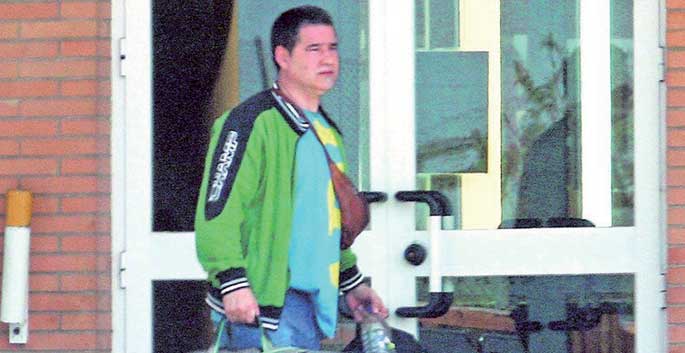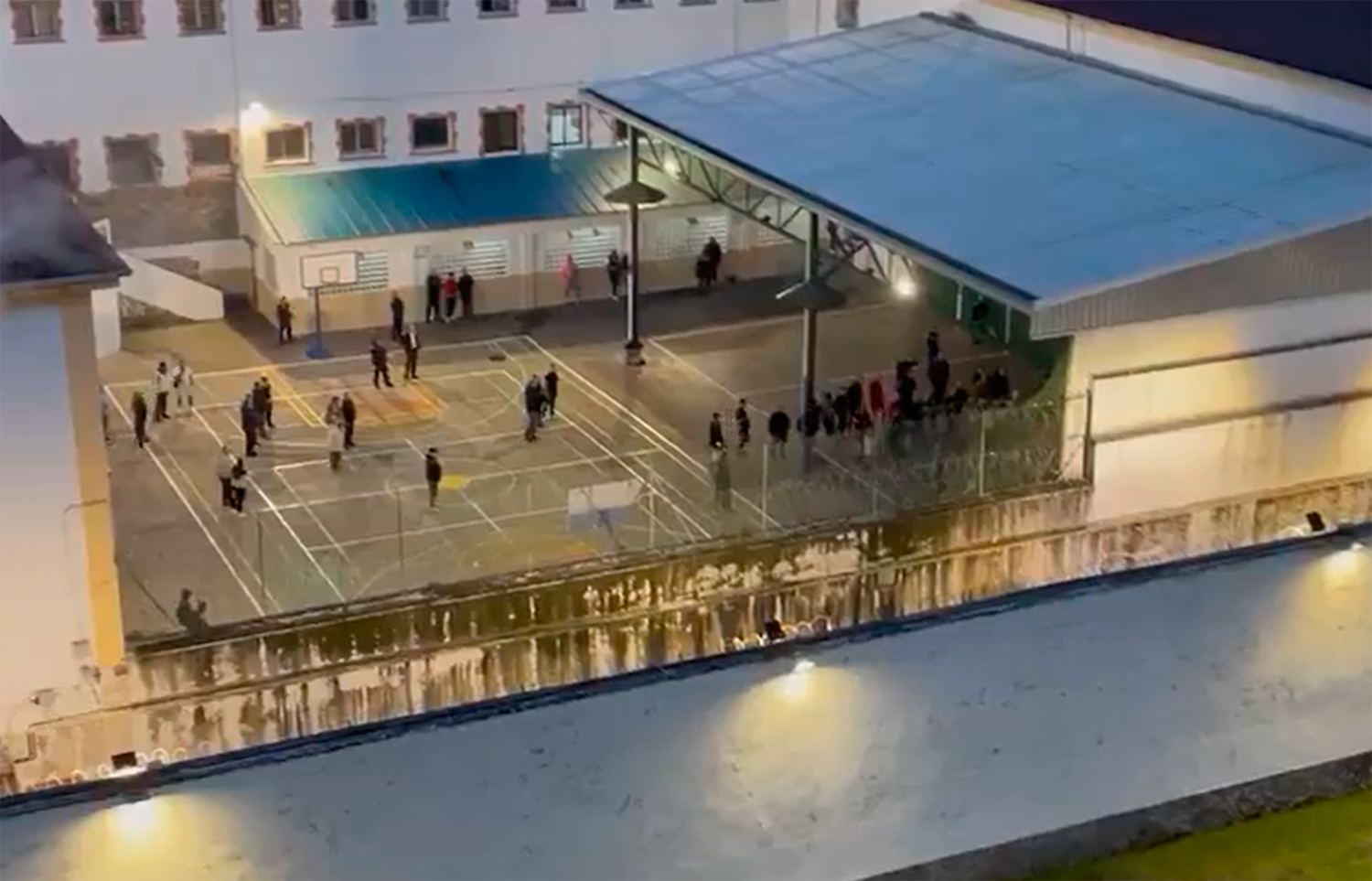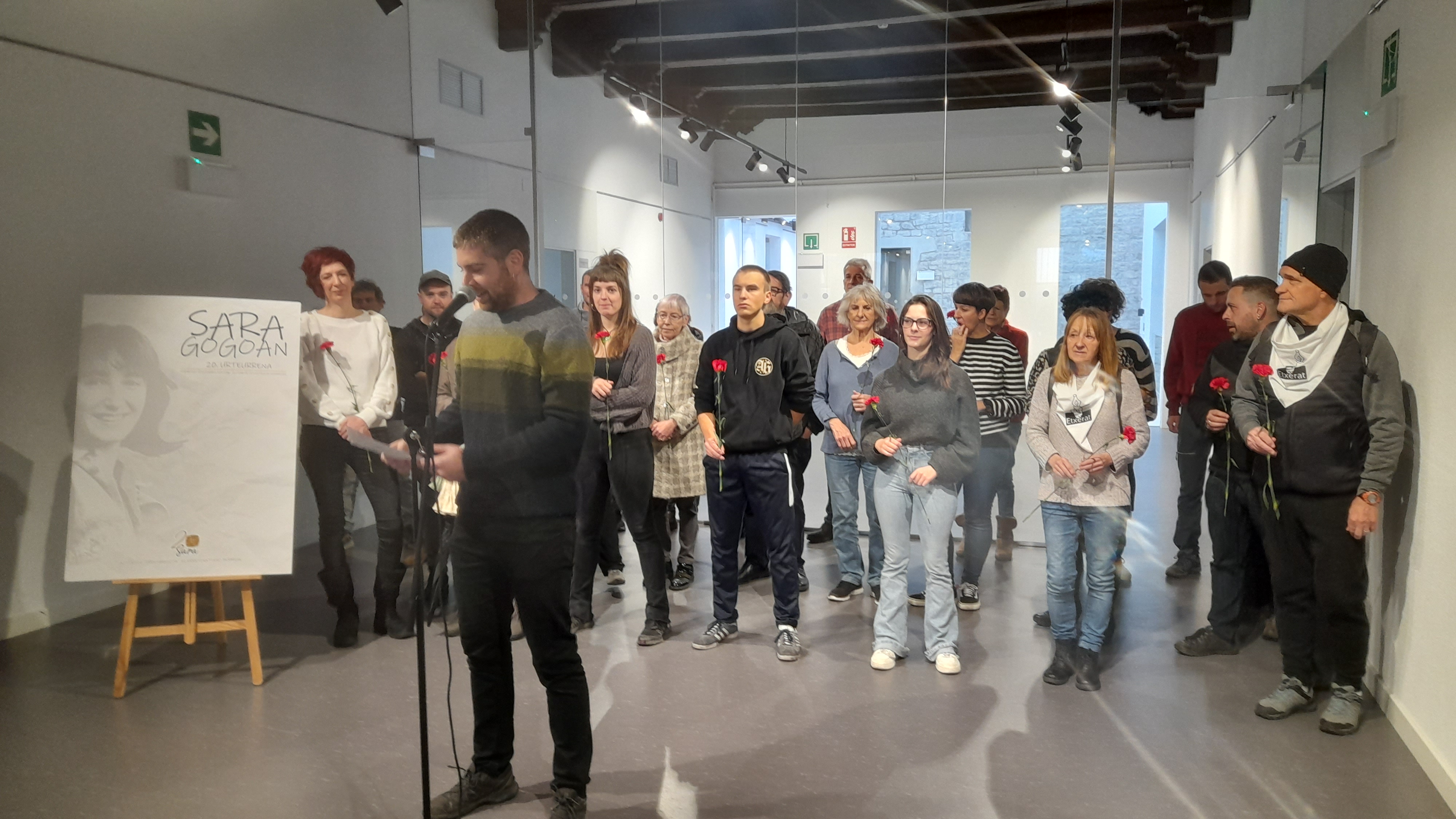Legal engineering for the imprisonment of Troitiño
- On 14 April last, the judge of the London Westminster Court, Howar Riddle, agreed to the extradition request of Antton Troitiño. The defence has decided to bring an appeal before the Court of Appeal and it will have to verify it at a later date. Troitiño is on probation in London and, like other Basque prisoners, the Spanish Government has already in place the re-entry mechanism in prison. In Madrid it is called legal engineering.

Antton Troitiño served 24 years in prison and was released on 13 April 2011 by the Third Criminal Chamber of the National Court. The jury is composed of Alfonso Guevara, Guillermo Ruiz Polanco and María de los Ángeles Barreiro.
Like many of the historic members of the eta released, from different areas of Spain there were harsh criticisms of the decision of the National Court, especially from the associations of victims and the pp. His case once again shows that the Spanish Government is doing its utmost to create accusations and re-imprison several prisoners.
The media storm that originated in April 2011 in Spain was decisive for the same judges who had decreed their freedom to request their re-entry into prison a week later. But Troitiño had already left. He was arrested in June 2012 in London and imprisoned in the British capital prison. However, in October 2013, the Strasbourg Court already issued a judgment on the Parot doctrine, by which British justice decreed his release on probation.
However, the Spanish authorities did not surrender and were accused of re-entering ETA because of the false documentation that had been seized at the time of the arrest. For this reason, and by order of the National Court, on 13 February 2014 he was again arrested by the British police. One day later he was released on parole.
The last day 14 has been the third time that Spain has filed an extradition lawsuit against him. After the 'yes', your lawyers will now file an appeal and you will have to see what the appeal remains.
Freedom in Spain
When Troitiño was released in April 2011, the Spanish Media Brunete was launched, this time against the Third Chamber of Criminal Affairs of the National Court. The head of justice and home affairs of pp, Federico Trillo, said: “It is a disgrace that the Constitutional Court, which must guarantee the rights of the Spaniards, should act to guarantee the rights of the ethnic groups.”
The then president of the CAV pp, Antonio Basagoiti, was more concrete: The release of Troitiño is “absolutely shameful” and the Government “should find the way” for the Ethiopian to return to jail.
The substance of his release was found in the interpretation of the rules on compliance with the provisional prison sentence. In 2008, the Constitutional Court took an important decision on provisional detention, which always affects cases where there is more than one sentence. The Court ruled that the provisional imprisonment of the second or third, fourth, etc. would be deducted from the total prison sentence. And for each day of sentence provisionally complied with the Penal Code would provide another to compensate for the benefits that the prisoner did not receive in pre-trial detention.
In that judgment, the Third Chamber of the Criminal Court of the National Court was founded to release Troitiño in April 2011. In fact, the Basque prisoner served 32 years of official imprisonment, since, although exceptional, his provisional prison was 8 years. This decision was taken on 13 April, but at the same time the Supreme Court was deciding on the same matter and in the judgment of 28 March, the Supreme Court said quite the opposite: the provisional prison should be suspended from every sentence as it was served.
The PP Government also had in mind the 2008 ruling of the Constitutional Court and in 2010 reformed Article 58.1 of the Penal Code, indicating that the provisional prison would be removed from each sentence and not from the total. What was the problem? Amendment of the law, which cannot be retroactive, would only affect the penalties imposed from 2010 onwards. The ruling of the Constitutional Court would affect many Basque prisoners and a way had to be found for this not to happen. In other words, legal engineering had to be done.
Why did the judges retire?
The judges of the Third Chamber of the National Court have considered their first judgment to be an error, since the judgment of the Supreme Court of 28 March 2010 was made public on 18 April and its judgment was of 13 April.
The minister of José Luis Rodríguez Zapatero, Juan Fernando López Aguilar, also said it at the time: if there is no evidence, we will create them. The current Minister of the Interior, Jorge Fernández Díaz, spoke in other ways in relation to the Parot Doctrine: if necessary, legal engineering will take place.
Subsequently, in the judgment of September 2013, the Constitutional Court states that it does not enter into the decisions taken by ordinary courts to implement the Penal Code, because its work is a guarantee of freedoms. Wash your hands and you're done.
De Juana, Troitiño, Arrozorder
This is not the only case in Troitiño, but a number of Basque prisoners have met with legal engineering. Perhaps the best known is Iñaki's by Juana Chaos. In the context of the Loyola process in 2006, the question of her freedom arose and – as a result of the hunger strike initiated – led De Juana to death. Once released, the allegations were rebuilt through the opinion articles El Escudo y Gallizo written in Gara. Today it still escapes.
ETA was then in truce, but in armed action. When Troitiño was released, ETA had not yet announced the cessation of its armed activities. On the contrary, the concept of the Spanish authorities remains the same after ETA abandoned its arms.
It is also worth mentioning the Lasartean prisoner Santiago Arrozorder, to whom Spanish justice has responded with the same medicine as him. On 4 December 2014, he was released after 27 years in prison and was arrested on 20 January 2015, charged with two cases that have not yet been tried. Alberto Plazaola was also released on the same day as Arrozabide, but was not located at the time the arrest warrant was issued.
Arrozpiderena has no legal meaning, since Spanish justice provides for the concurrence of penalties and, consequently, the penalties imposed at the same time and for the same type of crime are integrated into a single punishment. The attacks that are now being accused of are those of the 1980s and Arrozorder, precisely, was condemned for the attacks that occurred at that time.
The new complaints are not legal, they should be released before it is too late, but now it can serve to keep Arrozorder back in prison for a while. In addition to revenge, it serves to protect itself from the criticism received by the Spanish Government of several victim associations.
The political use of Arrozabide’s human rights is absolutely transparent by the Government of Mariano Rajoy and by the Spanish Justice, it cannot be said that they are hidden. What is more hidden is the denunciation that Basque society and the institutions should make of such cases.
That is what is being done.
I've thought if Palestinian children also have this question in their head with our book. How many duels are missing to end the genocide? How many children should Israel kill with the complicity of the states of the world.
Are you going to ask these questions to your mothers? Or... [+]

























